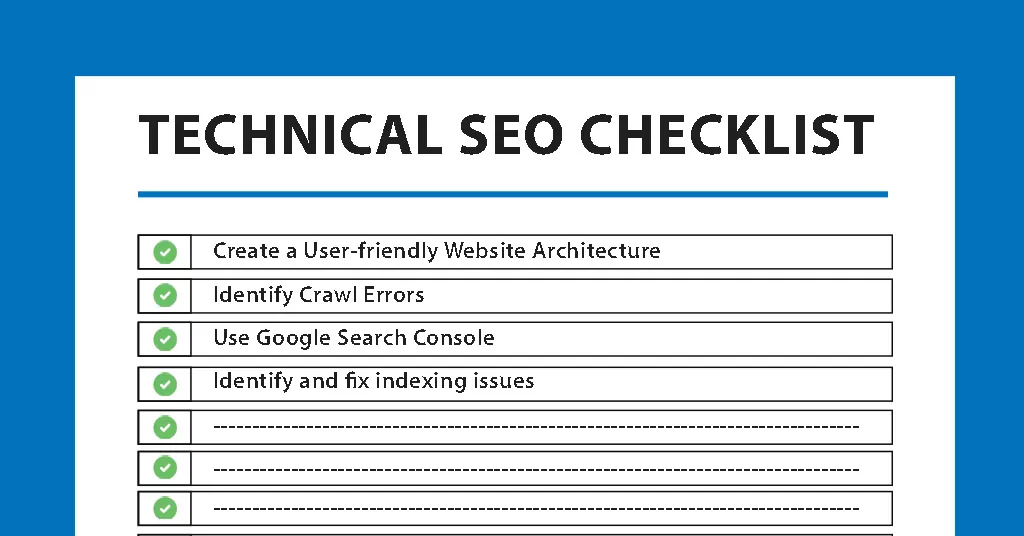GDPR and Your Website - The Must-Knows for Ensuring Optimal Google SEO
Table of contents

Nothing in the dynamic world of digital marketing remains static for long, especially given the ever-changing landscape of search engine optimization and user data protection standards. The General Data Protection Regulation (GDPR) was one of the most significant regulatory reforms in recent years. This European Union rule has far-reaching ramifications for how firms, particularly digital giants like Google, handle and analyze customer data.
As we look ahead, it’s worth considering how Google’s algorithms power their search engine, influencing how websites are ranked and search results are shown. These algorithms are influenced by various factors, many of which may be affected by GDPR.
The interaction of GDPR and SEO is complex, with both benefits and challenges. GDPR’s severe data privacy requirements may compel Google to change its algorithms, which might have serious implications for firms that rely on SEO methods. Understanding these potential developments is crucial for businesses looking to stay ahead of the competition and improve their digital marketing success. According to numerous internet publications, the General Data Protection Regulation is the most significant data protection law enacted thus far.
It oversees the collection, use, distribution, and protection of data collected from citizens of all 28 EU member countries. The requirements apply to everyone in the EU, no matter where the company collecting the private information is situated. Companies refusing to comply with the GDPR may incur penalties of up to € 20 million, or 4% of global revenue.
Search Engine Optimization (SEO) and marketing firms have had their fair share of fun while publicly processing client data or abusing numerous murky areas. However, this has since ended.
Marketers had fun freely managing user data or exploiting several murky areas. Most professionals in the digital industry are in a state of mild panic because they are unsure how to comply with the GDPR while continuing to operate their businesses without incurring losses or risking fines.
In an era of hypoconnectivity, rapid globalization, and significant technical progress, the previous Data Protection Directive 1995 needs to be updated. The EU Parliament eventually enacted the GDPR in 2016 following four years of planning and discussion. We’ll look at GDPR’s importance, how it affects SEO regarding SERP ranks and the unavoidable changes the industry will experience.
What is GDPR?

The General Data Protection Regulation (GDPR) is a key law that keeps personal information private on the Internet. It is also one of the world’s strictest rules regarding online security.
The GDPR was designed and approved by the European Union to impose hefty fines on any organization or individual that infringes on an EU citizen’s privacy. The effective date of GDPR legislation is May 25, 2018. Since then, the EU has collected over 320 million dollars in fines as it embarks on GDPR.
The GDPR applies to all businesses that conduct business in the EU. Even if there is no physical residence, any internet company that sells to the EU must be GDPR compliant. The General Data Protection Regulation (GDPR) is a legal document whose declared objective is to provide individuals in European Union member states more control over their data by keeping it out of the hands of businesses with less than honorable intentions.
If a corporation handles an EU individual’s personal information, it must comply with GDPR, regardless of location. The most efficient approaches to comply with GDPR are to have a legally compliant website and to employ lawfully compliant SEO optimization techniques.
As a result, it is prudent to address critical concerns about SEO compliance right now. Long-term success depends on preserving customer trust and safeguarding their data. Thus, including this in your marketing approach is crucial.
GDPR, or General Data Protection Policy, is a European Union policy that aims to provide data protection and collection consistency for EU citizens. This new legislation was created to improve how businesses view privacy and reduce data breaches in a world saturated with data and technology. By decreasing data breaches and limiting the use of user information, the EU is working to improve citizens’ rights.
As per web design Jacksonville FL experts, below is a list of GDPR’s criteria centered on eight essential rights people now have over their data:
- Right to be informed
- Right of Access
- Right to rectification
- Right to be Forgotten
- Right to restrict processing.
- Right to data portability.
- Right to protest automated profiling and decision-making.
The one unmistakable reality is that keeping your website GDPR compliant is worthwhile if you conduct online business with EU entities.
-
Data Analytics

Every organization must consider how they now use user data for analytics operations. Google Analytics, for example, gives you access to customer data. Again, social media analytic analytics come to the rescue, allowing marketers to create stronger campaigns and get maximum yield.
However, the above conforms with GDPR standards because the statistics are anonymized. However, if you currently use a de-anonymization technique, you will not be considered GDPR compliant. Examine your metrics; you may discover that internal methods, such as sending confidential information to staff members via email messages or specific facts in email campaign reports, violate the guidelines.
There needs to be proof from any search engine that GDPR implementation will be a ranking factor in their outcomes; moreover, this does not rule it out. Search engines provide tactics that initially appear optional but gradually become crucial to a website’s position.
We need to look at HTTPS as one of the recent examples. Whereas HTTPS was formerly simply a preferred condition, Google now takes it so seriously that customers are informed whenever they attempt to access a non-HTTPS website through Chrome.
The transition to HTTPS also implies that Google is beginning to prioritize websites with stronger security protocols, including them as a crucial component in its iterative algorithm.
-
Value-Added Content
As per GDPR’s constraints, businesses increasingly opt to create relevant content to gain subscribers. This implies that SEO complies with GDPR.
GDPR has brought organic and sponsored search into better harmony by reducing remarketing. You can benefit from this by optimizing both your information and URLs. More users will click on pages as a result.
Furthermore, it would help if you focused more on creating useful content that adds value to clients and motivates them to return to your website frequently. It also helps to create attention-grabbing titles and headlines.
The most difficult element is that modern consumers expect highly personalized content, making it tough to strike the correct balance between giving subscribers what they want and using their information in a GDPR-compliant manner.
The best approach here is to seek appropriate permission and raise awareness about how you intend to utilize the statistics, explaining how they will help you create a better and more personalized customer journey.
-
Budget Reallocation and Lower Cannibalization
For larger firms with precise accounting systems, a significant portion of the 2018 marketing budget was determined when the year started. Because GDPR is overturning attribution, compensated budgets are being rethought; cash allocated for paid advertising may become more accessible for SEO purposes.
If such funds are redirected to SEO, some wishlist backburner projects may become a reality. Again, there has always been some cannibalization in the relationship between organic and sponsored search, especially when factors like product bidding or retargeting are considered.
With the ability to successfully retarget, legally forbidden in the European Union, and contextualization issues potentially limiting some brand searches, organic channels are positioned to increase as click volume switches to organic results, and paid listings within search engines are reduced.
-
Consent Management
Consent is one of the fundamental issues addressed by GDPR. Several websites are currently employing an edition of the line to obtain permission. However, with the implementation of GDPR, it will no longer be regarded as legitimate, and your web pages will need to encourage consumers to participate rather than passively actively.
There have already been a few disputes around cookie approval alerts, with some online sites reporting page loading rates slowing due to a popup.
However loading time is a ranking factor, so it can potentially lower your Google rank. All websites should acquire cookie permission. As a result, the transition has no significant negative consequences for anyone. However, this means you’ll need to investigate how such pop-ups affect your website’s loading performance more thoroughly.
-
Usability & UX
According to recent e-commerce trend research, for your business, you must have complete control over the user experience of your website across several platforms, including desktop, social media, and mobile. You must plan everything around your target demographic and produce a design that reflects the brand.
Many search engines use user experience (UX) as a ranking element in their algorithms. However, there is no reason to believe GDPR will not influence website user experience. Elements such as a more prominent cookie approval popup are now doing so. There could be major challenges if more changes are required to comply with GDPR and maintain confidentiality.
-
Privacy Policies & Traffic Blocking

Previously, links to other internet pages could not be posted on web pages, which did not contribute to the general content of the page. GDPR now allows you to include links to security procedures on all your pages and links to other pages.
Similarly, while other data retrieval platforms require users to log in and reveal personal information, searches can now be completely anonymous. Individuals concerned about their privacy can use incognito mode to make searches without signing into a search engine. Aside from the customized search features, search does not require cookies or other user information to produce outstanding results.
Blocking and rerouting GDPR-compliant EU visitors is no longer practicable, as this can influence your brand’s B2B SEO strategies, resulting in negative ramifications for your online platform, such as:
- Backlinks are being removed.
- Your EU positions have declined.
- Customer churn
The key to preventing this is updating your entire website and content to be GDPR compliant. The main solution to avoid this is to redesign the website and the current content to comply with GDPR standards.
The Effectiveness of GDPR to the Level of Transparency in Google’s Algorithm
Notably, openness has been fundamentally shifted through Google’s SEO algorithms by the General Data Protection Regulation (GDPR). Before GDPR, such algorithms were not even known to anyone at Google. According to a web design company in Jacksonville, GDPR forces firms to act more transparently about the data they collect, the ways of processing it, and its purposes. This has made users know the algorithms used by Google with higher transparency. Algorithm transparency of Google entails the fact that Google makes known to the public the factors utilized in ranking websites.
This openness is important for businesses and SEO practitioners because it explains how Google search works. With this information, they may modify their websites to meet all these criteria and achieve higher ranks. The GDPR has thus helped define this transparency in some ways, allowing Google to disclose more information about its algorithms.
GDPR has affected Google in terms of algorithm explaining, and users’ trust has been affected, too. Users of Google services might see better ways to harness data, thus increasing their trust in the company. This can affect SEO indirectly as people prefer using those sites recommended by their search engine’ gods’, in this case, Google.
Nevertheless, GDPR has created problems in the context of Google’s algorithm transparency. For instance, providing tips about the algorithms will influence the system.
Additionally, complete disclosure is required, although some aspects of life are very personal and should remain personal. Therefore, while GDPR has increased the transparency of Google’s algorithms, it is a thin line that must be trodden carefully.
As for the future, in 2024, GDPR will impact Google’s algorithm explanation. However, this will be more due to people’s increasing data literacy and attempts to gain more control over their data, not Google’s guilt-tripping. Even here, Google will have no choice but to open up even more about its algorithms. This will assist in building a new environment for SEO, which will be more authentic, client-oriented, and based on big data.
New and Different Types of User Consent Management under the GDPR and their Relationship to Modern SEO Algorithms
This paper examines how data obtained from Internet users is currently treated following the introduction of the General Data Protection Regulation (GDPR), with a major focus on consent as enshrined in the regulation. This transition in GDPR user consent management can impact Google’s SEO algorithms.
Another critical aspect of GDPR is that it requires the user’s consent to collect and process their data. The permission of the enterprises and online platforms must precede any accumulation of individuals’ personal information. This has led to enhanced personal data privacy when being processed online, which might have shifted Google’s SEO algorithms. Google Search’s inherent SEO ranking factors greatly rely on the information obtained from the users for the best search results to be delivered.
According to web design and SEO services experts, it is crucial to understand how sites gather and utilize such information to affect a page’s SEO rating. However, ever since GDPR was put into practice, the collection process of data and its usage process has become rather more rigorous. Websites are now required more than ever to be very cautious about how they gather and use user information to meet the rules of GDPR.
As for the future predictions, up to 2024, GDPR is expected to remain a determinant for the further regulation of Google algorithm transparency. As the population is to become smarter and more sensitive to personal data, Google may gladly be pushed further to explain its algorithms. Thus, it will contribute to the establishment of new trends for SEO development, which are based on openness, human-orientedness, and the use of data.
Alterations in User Consent Management about GDPR and Their Effects on Search Engine Optimization Algorithms
Specifically, the GDPR has radically changed the process of handling online user data with a focus on the users’ consent. Current GDPR user consent management trends affect how Google’s SEO algorithms are implemented.
Regarding GDPR, one of the most important and touched-upon aspects is the issue of consent for data collection and processing. For instance, enterprises and online platforms can only gather peculiar information about an individual upon providing their consent. This change has placed the privacy of persons over their information, suggesting that Google’s SEO ranking factors were changed. In Google, SEO calculations are largely based on the user making a relevant search that churns out a customized result.
Depending on how websites collect this data and the pattern in which they do so, daily SEO on a specific page can be possessed. However, since the implementation of the GDPR act, there has been greater strictness in the procedures followed in data acquisition and control. This makes it imperative for websites to be very sensitive about how they capture or otherwise collect any information that could be associated with a user for it to be covered under the GDPR.
Google, therefore, needs to find the middle ground between the topic of personalization and privacy to serve relevant content that, at the same time, does not infringe on the privacy of the users. This is a tightrope balance exercise that, if not done well, can harm Google’s SEO computations in 2024.
It is among the principles that the GDPR is centered on; this principle recommends that organizations must only gather and process a minimum amount of data as is necessary to facilitate the provision of services. The following rule may affect the applicability of Google’s SEO algorithms since it lowers the level of distinguishability. Thus, when search results are presented to the user in a socialized search, Google may have to offer results that have more general relevance rather than scores of personal significance.
According to Web Design Jacksonville experts, the GDPR’s main feature – the ‘right to be forgotten’ enables the data subjects to demand that their data be erased. The former of this provision could impact the theory of the special search results. This could be a problem for Google, as could time wasted finding information, or consumers exercising this right and Google losing a large volume of supplied data that can influence the quality of its customized search results.
GDPR and what does it mean for personalized search. Google has also been affected by the General Data Protection Regulation (GDPR) and its search results, especially the personalized ones. Before the GDPR, Google harvested tremendous volumes of identity and identification data to personalize search results. The GDPR, due to its high data privacy and protection requirements, has changed this approach.
The GDPR pressures enterprises to ask users for permission while collecting or processing personal data. This regulation has forced site owners to reconsider their approach to offering tweaked personalized search postings.
Rather than depending solely on personal data, Google must strike a balance between personalized experiences and user privacy. This is a delicate balancing act that may affect Google’s SEO algorithms in 2024.
Conclusion
GDPR is a significant achievement for consumer privacy but also introduces new hurdles to digital marketing. Your SEO job is GDPR compliant if you focus on technical efforts and keyword research. However, SEO can only help if your website securely handles any user information it collects.
Earning and maintaining user trust should always come before increasing click-through rates and page views. Because of its potentially severe fines and broad scope, the General Data Protection Regulation (GDPR) is a source of anxiety for all online businesses. Preventative measures are the most effective way to ensure your company’s financial stability.
The GDPR establishes a new global data privacy and security standard, bringing about historic change by giving people complete control over their data. Undoubtedly, industry analysts anticipate numerous hurdles and obstacles shortly, particularly when properly collecting data, being honest, and surviving the upheavals occurring in the data economy.







